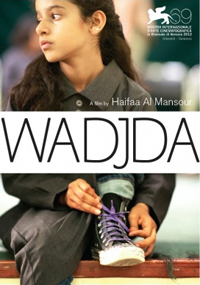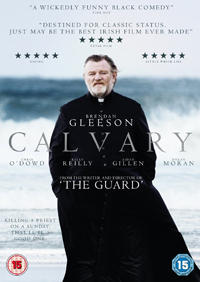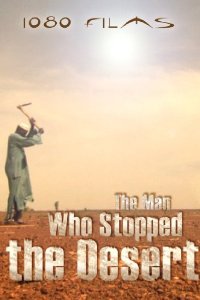"Ploughing the Soul"
Ten Foreign Films from 2014
By Dan Clendenin
For Sunday December 28, 2014
Lectionary Readings (Revised Common Lectionary, Year B)
Isaiah 61:10–62:3
Psalm 148
Galatians 4:4–7
Luke 2:22–40
At our church retreat in October, Jane Shaw, newly appointed Dean for Religious Life at Stanford University, spoke about the role of art in our churches. In her four years as Dean of Grace Cathedral in San Francisco, Shaw pioneered innovative uses of art in the church, including a resident artist program. Many people who would never come to church came for the art. Art, says Shaw, creates an opportunity for empathy with our neighbor.
In his book Sculpting in Time (1986), the Russian filmmaker Andrei Tarkovsky says that "the allotted function of art is not, as is often assumed, to put across ideas, to propagate thoughts, to serve as an example. The aim of art is to prepare a person for death, to plough and harrow his soul, rendering it capable of turning to good."
Every year there are roughly 700 films released that generate some $10 billion of revenue. Here are 10 foreign films from our 2014 reviews that, in Tarkovsky's words, "ploughed my soul," and, I pray, "rendered it capable of turning to good."
5 Broken Cameras (Palestine)
Emad Burnat is a Palestinian peasant in the village of Bil'in in the West Bank. He's married, has four young boys, and lives off the land by picking olives. He's also a very brave videographer. When the Israeli bulldozers moved into their Palestinian lands to build settlements and a separation wall, Burnat filmed the organized protests of the Bil'in villagers. This is as close as you ever want to get to the violence of a state brought to bear on a popular resistance — tear gas, riot gear, undercover agents, helicopters, night raids, snipers, the arrest of children, and martyrs. The movie's title comes from the five cameras that Burnat used, all of which were smashed as he filmed the uprisings from 2000 to 2006. In Arabic with English subtitles. I watched this on Netflix streaming.
 |
Wadjda (Saudi Arabia). |
Calvary (Ireland)
Father James is a wise and wizened priest in a small village on the Irish coast. The rugged terrain befits his authentic faith that doesn't shrink from hard questions, compassion, and candor. In the first minutes of this film, Father James receives a death threat. The rest of the film is filled with cameo characters who test his faith and theirs in various ways — despair, wealth, adultery, cynicism, suffering, the death of innocents, aging, and, like a recurring bass line, priestly pedophilia. One reviewer called this film "the plight of a lonely believer in a world beyond belief."
The Act of Killing (Indonesia)
In 1965, a military coup overthrew the Indonesian government, after which killing squads slaughtered as many as 2.5 million suspected communists in less than a year — union members, landless farmers, intellectuals, and all ethnic Chinese. This mass murder was carried out with the direct aid of western governments. The perpetrators are still in power today. In this surreal film, which was nominated for Best Documentary for the 2014 Oscars, two members of the death squads proudly explain what they did and how they did it by re-enacting the mass murders. "We have too much democracy," says one of the murderers, "it's chaos." I watched this film on Netflix Streaming.
Inside The Islamic State (Syria)
I watched this 42-minute YouTube after seeing it in an article in the Huffington Post. The journalist Medyan Dairieh of Vice News gained unprecedented access to the Sunni militant group ISIS, the result of which is this documentary. Dairieh spent three weeks with an ISIS press officer, who took him to recruitment centers, rallies, a prison, and rides with the vice squad. The film explains how in March 2013 ISIS took control of Raqqa, Syria, and made it its de facto capital, and declared Abu Bakr al-Baghdadi its caliph. ISIS now controls large swaths of Iraq and Syria. "I say to America," brags the press officer, "that the Islamic Caliphate has been established. And we will not stop." For the video, click on the link below. Warning: parts of this video contain graphic violence.
http://www.huffingtonpost.com/2014/08/22/iraq-conflict-documentaries_n_5698169.html
 |
Calvary (Ireland). |
Last Days in Vietnam (Vietnam)
In the Paris Peace Accords that ended the Vietnam war in 1973, the United States promised to protect South Vietnam from any aggression by the communist North Vietnam. We broke that promise. After Nixon resigned from office after Watergate, North Vietnam began its assault on the south. By 1975 they were at Saigon. Chaos enveloped the city. Citizens and soldiers sought to escape by any means. This documentary gives an hour-by-hour account of how American personnel defied orders to evacuate only Americans, in order to evacuate 77,000 Vietnamese from the American Embassy in Saigon in the weeks before it fell to the north. This isn't a political film, it's a story of the moral courage of some Americans who did their best to do what was right in a horrible situation. The movie is directed by Rory Kennedy, the daughter of Robert F. Kennedy and niece of JFK.
The Law in These Parts (Israel)
David Shulman, an activist in the Arab-Jewish partnership called Ta'ayush, called this movie "the finest Israeli documentary ever made about the [Israeli] occupation." The movie explores the systemic judicial injustices inflicted on hundreds of thousands of civilian Palestinians. The movie also "touches on the legality of torture, mass arrests, prolonged administrative detention without trial, the violent suppression of civilian demonstrations, punitive home demolitions, severe restrictions on freedom of movement, and other practices that have become commonplace under Israeli rule." Israeli judges admit that state security and control come before human rights and justice. Such is the "appalling record" of the Israeli judicial system, says Shulman.
The Man Who Stopped the Desert (Burkina Faso)
Yacouba Sawadogo is an illiterate farmer in the west African country of Burkina Faso who's done more to reverse the ravages of drought and desertification than all the money and expertise of western aid and agencies. So says the Dutch scientist Chris Reij, who helps to narrate this documentary film about Sawadogo. His simple methods have turned 50 acres of harsh desert into lush forests. Sawadogo has faced opposition from "land chiefs" because he's going against traditional practices, and from the government's plan for urban expansion. Still, his techniques have impacted the social, cultural, economic, and environmental aspects of his community. They now enjoy "food sovereignty" even in years of little rain.
The Past (Iran)
The writer-director Asghar Farhadi's previous film called A Separation won an Oscar in 2012 for best foreign film. Like that film, The Past takes a long look at what seems like a simple domestic story. After four years back in Tehran, Ahmad returns to Paris to finalize his divorce with his French ex-wife Marie (played by Bernice Bejo, who won Best Actress at Cannes for her performance). But like the layers of an onion, the more the story progresses, more and more layers of complexity are revealed. This film earned a whopping 96% on the Tomatometer. In French with some Farsi.
 |
The Man Who Stopped the Desert (Burkina Faso). |
People of a Feather (Inuit)
The "people" in this film are the Inuit of the Belcher Islands in the Hudson Bay of the Canadian Arctic. The "feather" is that of the eider duck, which is central to their way of life. This 90-minute documentary is partly a study of how traditional life has changed for these Inuit. They hunt by harpoons and rock slings, but also by shot guns. They travel by snow mobiles and motor boats, as well as by kayaks and sled dogs. Their small homes, when they're not in igloos, include flat screen televisions. Radios feature American rock music, to which the teenagers rap and break dance. Another narrative explores the dramatic changes in the sea ice ecosystems and ocean currents due to climate change and hydroelectric dams. There have been major die-offs of the eiders due to the changes. The movie features footage from seven Arctic winters. I watched this film on Netflix Streaming.
Wadjda (Saudi Arabia)
Wadjda is a spunky ten-year-old girl in Riyadh who's living on the adolescent borderline between innocence and knowledge. She also has a mind of her own. Whereas her classmates wear dull black shoes, she wears canvas high tops with stars and purple shoe laces. She paints her toenails, listens to rock music at home, and saves up to buy a bike so that she can race her neighborhood buddy Abdullah. She also knows that the principal of her school has a lover, that her own father might take a second wife because her mother hasn't given him a boy, and that she always has to veil herself and make herself invisible to men. The film, written and directed by Haifaa Al Mansour, is the first feature length film by a Saudi woman, and it tackles gender roles head on. Riding a bike, in a country where it's illegal for women to drive, is a wonderful symbol of the freedom to roam. In Arabic with English subtitles.





